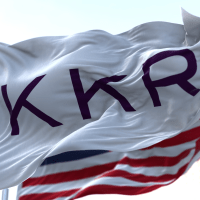The first quarter of 2019 broke the all-time record for investment in Europe, with EUR7.3 billion invested (EUR8.3 billion including Israel), and according to a new study by e-front, the global venture capital industry hit an all-time high last year.
The first quarter of 2019 broke the all-time record for investment in Europe, with EUR7.3 billion invested (EUR8.3 billion including Israel), and according to a new study by e-front, the global venture capital industry hit an all-time high last year.
Much of the vibrancy of the venture capital market at the moment is driven by the outstanding performance of European funds. We also see US investors coming over to Europe and sourcing venture deals over here to a larger extent than ever before.
Octopus Ventures principal, Malcolm Ferguson, assesses new investment opportunities for the firm in London, as well as being a non-executive director of portfolio companies such as By Miles, DeadHappy and Sofar Sounds. And in his view, the fact that 2019 was another record year for deal volumes in European venture capital, especially in the UK, is driven mainly by the fact that there are more players and more funds in the market. “Funds are less generalist and more specialist today and investors are more informed,” said Ferguson.
He also considers the seed and series A end of the market as vibrant and exciting, and reveals that Octopus has doubled down in terms of fundraising, team growth and deployment to capitalise on the opportunity, which has always been Octopus Ventures’ sweet spot.
“The ecosystem has continued to mature, with persisting transition from a generalist approach to a much more specialist approach, through the emergence and success of sector specialists. Two years ago Octopus Ventures shifted its focus slightly in light of this, by splitting our investment team, which is now almost 20 strong, into three separate sector teams – future of health, future of money and deep tech,” he explained.
Series B, however, is another story. Ferguson views it as one of the hardest rounds to raise for EU tech companies, as there is a relative shortage of funds who are comfortable investing at a point where, although there is some data, there remains both venture risk (ie business model immaturity, limited data points, initial scaling pain) and execution risk.
“This is trending in the right direction, with 2019 better than 2018, but still has a way to go. Interestingly, we’re seeing US West Coast funds more and more in London at this stage – this is somewhat a reflection of the massive levels of capital in that part of the world and associated competition for deals, and the resulting impact on valuation levels, as well as cost and the challenge of attracting and retaining talent,” said Ferguson.
He thinks Series C is a great place to be currently and it’s also where Europe is getting exciting and the global mega funds on both continents get integrated into the system.
“At this point, the capital availability is at its best it seems, especially for the top quartile companies,” commented Ferguson, who adds that this is the level where international mega funds get involved, as well as strategic and private equity. “We’ve also seen the largest buyout PE funds, who typically play in a different part of the value chain, launching specific ‘growth’ funds – Apax and Blackstone are two examples, and KKR has been doing it for longer.”
One important change worth mentioning is the pendulum swing from crazy growth at all costs, to a more considered approach where business model viability increasingly key. For me this is a real positive and is one of the areas that Europe has been great at, thanks to the discipline instilled from a historic lack of later stage capital,” he said.
What is it that makes Europe increasingly attractive for overseas investors? Ferguson points to how previously within the European venture capital industry, founders would sell too soon. But now with the success of high-profile IPOs like Adyen and Spotify there’s a new bar. Capital is also more available, so we see rounds of USD200 million to USD1billion.
Europe’s recent success is indeed driven by mega-rounds: the ten largest rounds in Q1 2019 accounted for EUR2.2 billion, or 26 per cent of the total, according to data from research company dealroom.co.
Ferguson doesn’t believe this development will last forever, however. “The mega rounds are driven by the availability of capital. Valuations are higher and funds are more disciplined. I don’t see this being a long-term trend.”
Northzone partner Pär-Jörgen Pärson, was featured as No4 on the 2019 European Midas List. His portfolio includes multi-billion dollar exists in Spotify, iZettle and Avito. Some of Northzone’s recent investments include Klarna, the new payment solution for online shopping, Tier, the fastest growing urban mobility start-up in Europe and Wagestream, UK-based financial wellness company.
Pärson sees the mood music in both private and public markets distinctively shifting towards investors seeking a clear path to profitability and capital efficiency over hyperscaling.
“In the midst of fears of a market correction and greater scrutiny on well-funded but highly unprofitable business models, returning to unit economics and preparing for greater cash burn flexibility should be a priority for all founders,” he said.
He remains optimistic about the future of Europe going forward. “Despite challenges, growth of experienced advice and alumni from the likes of Spotify, Klarna and iZettle will be driving the next wave of exciting European startups to watch in 2020,” he added.






